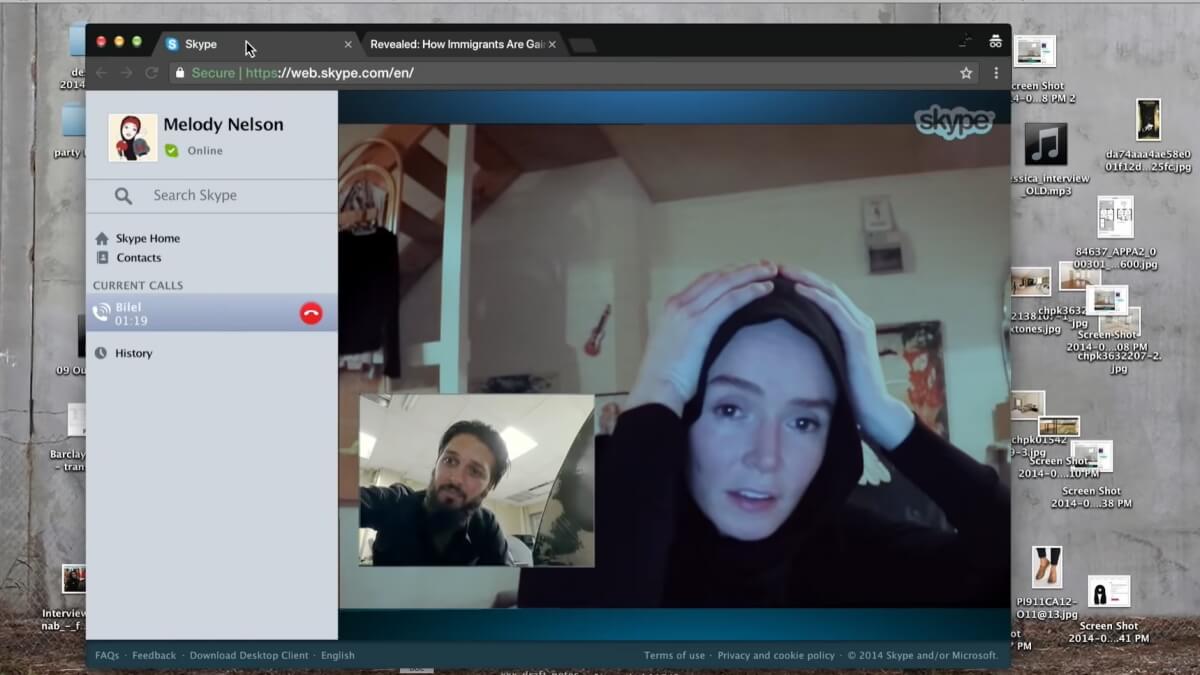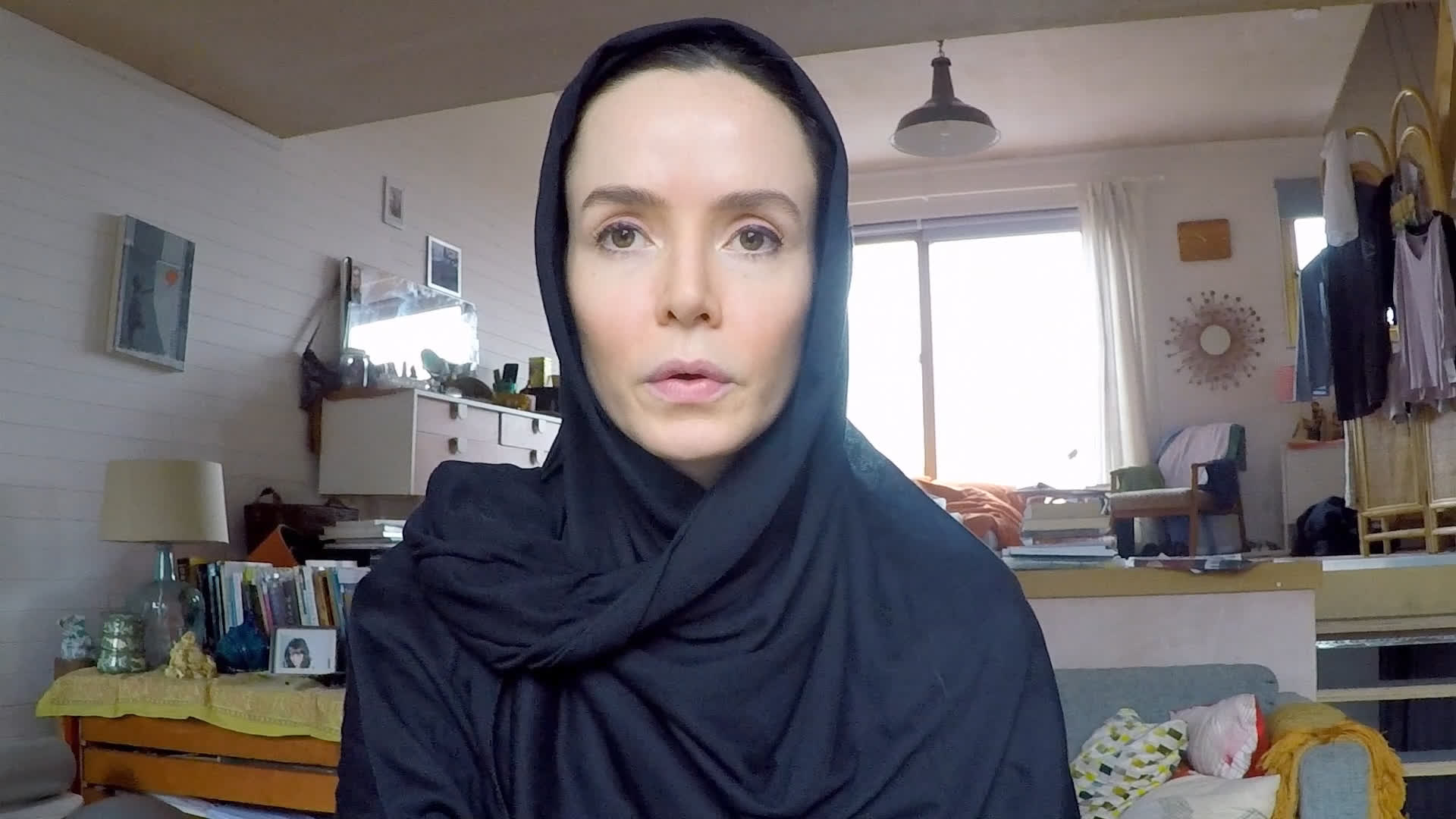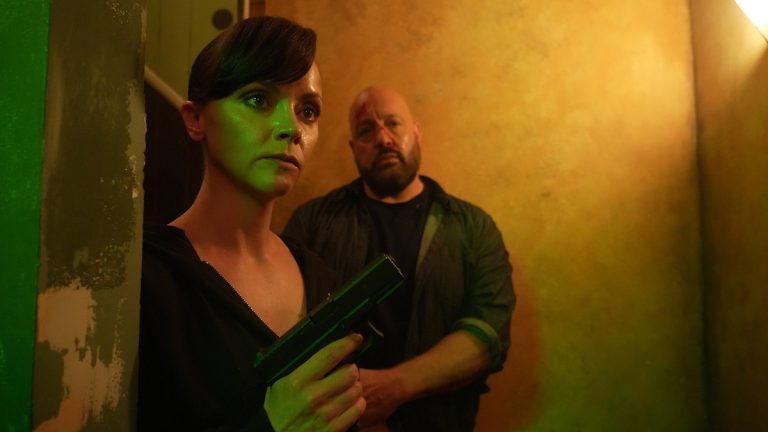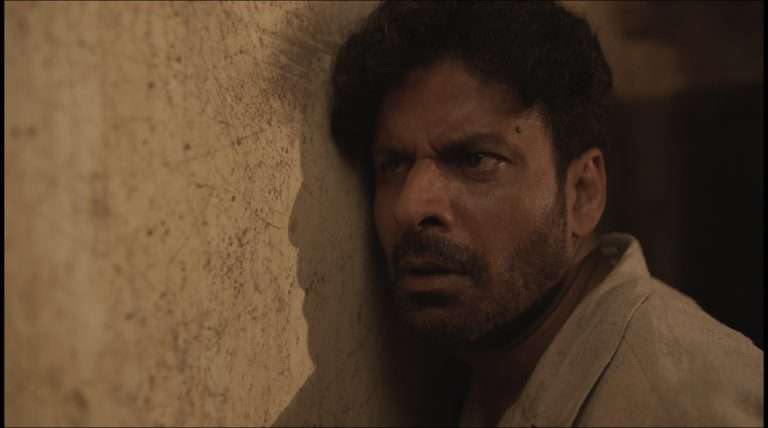Whenever a film offers an experiment that veers off traditional filmmaking methods, I tend to stay away from those, as they’re more likely akin to theme park attractions than anything else. Of course, some will complain about the theme park nature of Marvel movies. Still, those films (and TV series) follow the basic conventions of the cinematic language and, in many retrospects, produce some of the best blockbusters of the modern era. That doesn’t mean those films (and TV series) are without their flaws, but the entertainment they produce is unparalleled. A distracting film like Unfriended and Searching wants to frighten through a screen-captured representation of an event unfolding in real-time but is busier with distracting audiences through dopamine receptors (Facebook text messages, Skype calls) instead. Those films could only work if they exalt hyper mediation to the fullest, meaning that the film wouldn’t have worked without a screen capture. In the case of Timur Bekmambetov’s Profile, based on the novel In the Skin of a Jihadis by Anna Erkelle, there couldn’t have been another way to represent the chronicling of Amy Whittaker (Valene Kane)’s infiltration inside ISIS recruitment than through screen captures of skype calls and Facebook conversations, because that’s how ISIS recruited many gullible European teenage girls.
In Profile, journalist Amy meets Bilel (Shazad Latif), an ISIS fighter who recruits young girls. What starts as investigative journalism quickly turns into a love affair. Amy begins to have legitimate feelings for Bilel and starts getting attached to him, which poses a legitimate danger for Amy as her cover could be blown, putting herself and her co-workers at risk.
Related to Profile – Host [2020] Review: Pandemic-Fuelled Filmmaking Ingenuity
It doesn’t take long for us to get swept into the web-tangling world of Profile, as Bekmambetov quickly lures the audience into Amy’s screen recordings through diverse methods. The first being Facebook messages. There is nothing more uncinematic than looking at a chatbox conversation on the big screen, yet Bekmambetov makes it quite thrilling, as it doesn’t take long for Amy to be reeled in by Bilel’s charms and recruiting tactics. There’s a sentiment of unease permeating the screen every time Bilel types, and the classic “…” dots are being shown, never knowing what will happen or if he is suspecting something from the back of his mind.
At first, the conversations are cordial and informal, with Amy putting on an act to extract information, but it becomes more dangerous as the film drags along. The more she talks to Bilel, the more her chances of him finding out about her true identity are putting her at risk; and the stress level her conversations causes her to make rookie mistakes that could cause Bilel to suspect something. He seems completely impervious to whatever Amy is doing, but audiences know that, at the back of his head, he is seeing all of the signs that something is going wrong.
Scenes with Kane and Latif are Profile’s highlights, with both actors having the daunting task of performing their scenes through webcam conversations. Yet, we feel the palpable chemistry between the two (that’s likely because our COVID world forced us all to be virtually connected for a year and adapt to this “new normal”), but the emotion is raw and unflinching. You feel the stress coming from Amy’s breaths as she quickly panics every time Bilel sidelines him and the frightening coolness of Bilel, who knows exactly what he’s doing to try and bring Amy to Syria.
Also, Read – How The Face of Another (1966) Finds Its Right Audience in today’s world
Both of them are incredible performances, and their talents are exploited to the fullest here. Every time Latif is on screen, the audience becomes increasingly nervous, as you never know when he’s going to snap or reveal his true self. It remains untranslated for Amy and the viewers whenever he speaks Arabic, adding more stress to her (and us) as we go along since the language barriers are real. Bilel can misdirect Amy into thinking it’ll be a peaceful entry to Syria…until she finds out what he actually said. Once we find out what Bilel has been saying to his colleague in Arabic, Amy becomes disillusioned with her love affair with him and starts realizing that this is how they recruit people; by playing on emotions and manipulating them by promising them a lush, rich, life, only to find out the exact opposite as soon as they arrive.
Internet traps are real, but Profile makes the audience a spectator of the trap, putting them in the center seat as Amy starts to fall for the bait and become more interested in him than the story she’s making. And while that aspect of the film is interesting enough, Bekmambetov can’t get past major clichés on Amy’s story. Of course, she falls in love with Bilel, which makes her distant from her editor (Christine Adams) and boyfriend (Morgan Watkins), resulting in overtly melodramatic dialogue we’ve all seen (and heard) before. Her editor wants her to pull herself out of Skype conversations with Bilel, but she’s developing real feelings for him, and her boyfriend wants her to stop messing around with him before it’s too late or, worse, they find out who she really is. And when they do find out who she really is, the finale is honestly quite anticlimactic, with all the tension being built up with this one moment resulting in…well…an end text to bookend everything we’ve seen. It goes deep into Amy’s psyche as she unravels the manipulative tactics of ISIS recruiting, but not as deep as in the book. The novel had a first-person account of what happened, with detailed descriptions of Mélodie’s emotional state as she starts to be seduced by Bilel. The film only stays in superficial dialogue and melodramatic scenes.
Still, the hypermediated screen life format allows Profile to be a rather immersive film, with terrific performances to complement it. This may be the only film with the framing device of a computer screen that I actually enjoyed because it’s the only film that actually makes sense to exploit that format. The two lead actors are either frightening or frightened, which amps up its anxiety and unpredictability in knowing what Bilel will do, or if Amy will ever slip. Still, its predictable dialogues and situation prevent the movie from being one of the very best of the year. But it’s an interesting experiment to look at, especially because it feels oddly familiar with our COVID ways of dialoguing with others. Remote investigative journalism can be particularly hectic, and Profile shows exactly why that is. If you’re curious enough, you may enjoy it.








